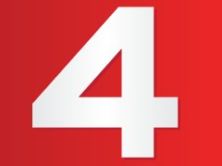
The NJ Appeals Court just upheld a lawsuit against blogger Shellee Hale for comments she made on another Web site's message board.
A New Jersey appeals court upheld a lower court’s ruling that a blogger isn’t afforded the source protections a traditional journalist is, The New Jersey Law Journal reported. Blogger Shellee Hale lost a lawsuit to Too Much Media, LLC for comments on a Web site’s message board about TMM.
The decision created a bit of a stir with some bloggers and online writers, including American Culture, which wrote that the decision is “backward-looking.” Likewise, Tech Dirt agreed, writing “this ruling is troubling in that it looks backwards, not forward.”
And, NJ Superior Court appellate judge Anthony J. Parrillo’s statement in the court document on the case – “Simply put, new media should not be confused with news media.” – might seem off-putting. But, does Hale’s case really create a precedent?
Significantly, the court did rule she wasn’t a journalist because she has no ties to a news organization and didn’t appear to be operating under journalistic standards. But, the controversial comments she made weren’t made on her own blog – they were made in the comments section of another Web site’s message board. Hale said the comments were part of her research for an article on TMM.
The Background
Too Much Media, LLC sued blogger Shellee Hale for defamation, false light and trade libel, Courthouse News Service reported. TMM is a Morganville, NJ-based “software company that develops Web products for Internet businesses.”
In 2007, TMM had a security breach “in which hackers compromised non-unique user names and passwords maintained in the NATS database for TMM clients and accessed subscriber lists to various porn websites and customer e-mail addresses,” the NJ appeals court wrote.
As a result, Hale, who identifies herself on one of her Web sites as a private investigator, a blogger, an online life coach, and a business and management consultant, ended up getting cyber-flashed while conducting online life coaching. So, in October 2007, Hale created a Web site “Pornafia” “purportedly ‘to inform the public on scams, frauds [and] technological issues’ in the adult entertainment industry,” the court document said. Pornafia is still under construction.
Hale commented on Oprano, which calls itself the “Wall Street Journal for the online adult entertainment industry,” Digital Journal reported. She claimed that TMM broke state laws protecting consumers from identity theft.
The court document noted Hale did online research, conducted interviews, and attended six industry trade shows. She collected information through porn industry blogs and message boards.
Hale wrote on one of her blogs, Camandago, that “This is truly a important case as we address the merging of mainstream journalism, blogging, citizen journalism and the credibility of an author and their means of collecting, researching, and disseminating news converges on a more popular medium – the Internet.”
TMM wanted Hale to identify the sources who provided her information.
“I believe that I do own the privilege to protect my witnesses statements that supported comments and questions I made online,” Hale wrote on her Web site. “More importantly, the comments and questions I made to a group on the Oprano Forum with a purpose of continuing to collect information for a story were not intended to defame or slander anyone but asked with the sole purpose of expanding on research I was doing for a story.”
Hale argues that she was acting as a journalist and that New Jersey’s Shield Law protects her.
The court ruled against Hale because it didn’t consider her to be a journalist.
The court noted that Hale didn’t have any journalism credentials or affiliations with “any recognized news entity, nor has she demonstrated adherence to any standard or professional responsibility regulating institutional journalism, such as editing, fact-checking or disclosure of conflicts of interest.”
TechDirt wrote that is “problematic” because this is the “age of participatory journalism” and many journalists aren’t affiliated with a news organization. “Furthermore, as technology has changed the whole process of journalism, there’s an awful lot about journalism today that ‘exhibits none of the recognized qualities or characteristics traditionally associated with the news process.”
American Culture noted “No ‘official’ body issued a license to Breitbart, or Michelle Malkin, or Ed Morrissey, or the folks at Politico, or me, or even Dan Rather to practice journalism. Free countries don’t have an ‘official’ press. That’s the way it should be, and has been throughout the history of America — which benefited from a free press before The Bill of Rights protected it.”
Hales identifies herself on her blog as a member of the Society of Professional Journalism, National Writer Union, and the Media Bloggers Association. She has no journalism degree, NewJersey.com blogged.
The court also noted Hale didn’t provide any interview notes or independent investigations into other reports. Hale said that she didn’t contact TMM. The court wrote she didn’t prove that she fact-checked her allegations, and most importantly, she didn’t appear to have identifed herself as a journalist when she conducted interviews.
“Most significant, defendant never identified herself to any of her so-called sources as a reporter or journalist so as to assure them their identify would remain anonymous and confidential, a key factor in the application of the newsperson’s privilege,” the court wrote.
If Hale didn’t present herself as a journalist, then why would she be treated as one? And if she couldn’t prove she operated as one – using basic journalistic standards, then why would she be considered a journalist?
As Wired reported, Hale’s controversial comments were posted on a message board, not on her own blog. The court said “the transmission and dissemination of a ‘message’ through the new medium of the Internet, or the display of one’s content or comment thereon, does not entitle the author or writer to the same protection as a ‘newsperson.'”
The appeals court and the lower court said TMM didn’t have to prove malicious intent to win monetary damages from Hale, Digital Journal reported.
Tech Dirt wrote, “It’s also a reminder that rather than various broken state laws that shield journalists, it really is time for a federal shield law to protect journalists.”
“It is quite disturbing to see a high-level state judge not only putting ultimate faith in an ‘institutional journalism’ class that has time and again failed in its mission to report the unvarnished truth,” American Culture wrote. “It is worse that this judicial panel decided on its own what is a ‘real’ journalist worthy of the protections of the First Amendment.”.
Online ethics have presented a couple of issues lately.
The Wall Street Journal reported that in 2007, the Citizen Media Law Project reported 106 lawsuits against bloggers and people on social networks and online forums. In 2003, there were 12.
In Canada, the Supreme Court has taken a case to decide if the posting of a hyperlink to defamatory material counts as publishing defamatory material, as StinkyJournalism reported.
StinkyJournalism is reaching out to Hale for comment.






Comments Terms and Conditions